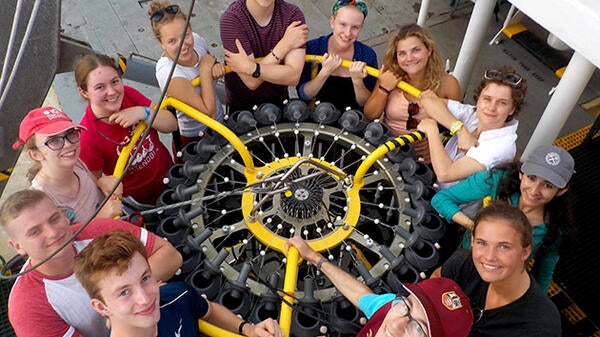For the last nine years, students in the Earth Science program at the University of Oxford in England have visited BIOS to gain first-hand knowledge of coastal and deep-water oceanography, as well as the unique geology of Bermuda.
Hands-on with Hurricanes
November 25, 2019
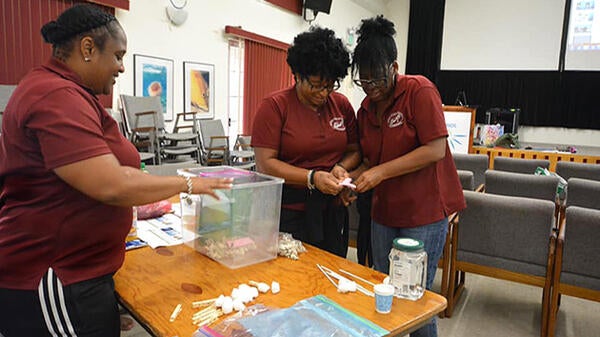
On the first day of the Bermuda half-term school holiday—Monday, October 21, 2019—18 teachers attended a workshop at BIOS entitled “Hurricanes: Data in the Classroom.” The workshop was offered as part of the BIOS Curriculum Enrichment Program, which offers educational support and resources to students and teachers, in an effort to boost the availability of science, technology, engineering, and mathematics (STEM) learning experiences in Bermuda. Through a partnership with the Bermuda Union of Teachers, the Curriculum Enrichment Program allows BIOS scientists and educators to share aspects of BIOS’s research for classroom lessons.
A Lifelong Passion for Science
November 25, 2019
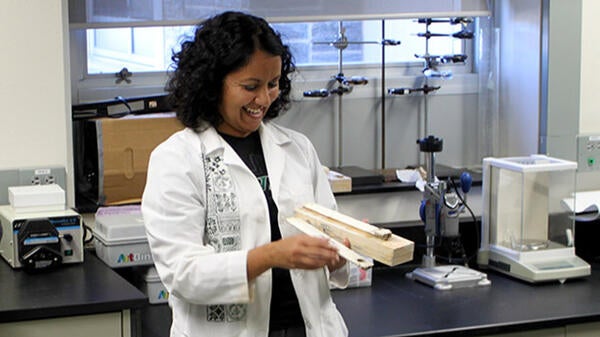
In the summer of 1999, in the middle of working toward her master’s degree in zoology at the University of Toronto, Lisa Rodrigues—then 21—returned home to Bermuda. Having heard about BIOS from her advisor, and with an interest in focusing on the island’s marine organisms for her thesis, she applied to and was accepted into the Bermuda Program. Now, as then, the Bermuda Program offers intensive, hands-on summer internships in marine and atmospheric sciences to Bermudian students ages 18 and older.
Medicine, Ocean Science, and Pharmaceuticals
November 25, 2019
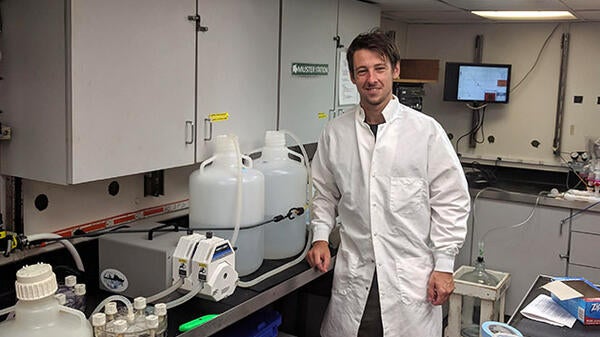
When David Picton first arrived at BIOS in 2013 as a work study intern, he had no intention of pursuing a career in research science, wanting—instead—to become a medical doctor. At 19 he had just finished his first year of studies in biomedical sciences at Newcastle University in the United Kingdom and was simply looking for an opportunity to travel and try his hand at something new, with the hopes of gaining a few skills in the process.
BIOS Offers K-12 Schools Abroad Unparalleled Opportunities
August 26, 2013
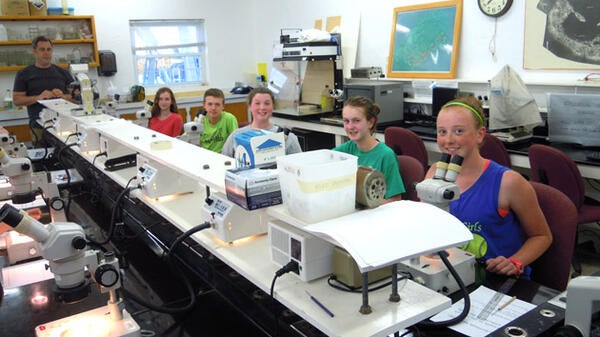
Although BIOS was originally founded as a research station for college and university students, over the years it has also become a place for middle and high school teachers to take their students for a trip abroad that combines hands-on education, adventure, and the experience of living on a working research station. Many of these teachers return year after year with new groups of students eager to learn about everything from history to marine biology to Bermuda’s native flora and fauna.
Princeton University Collaborates with BIOS to Teach Marine Biology
August 26, 2013
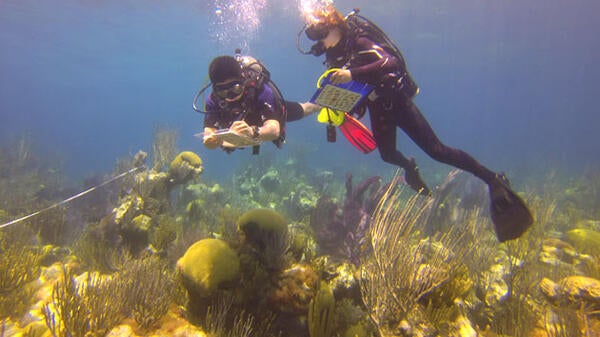
Each year, as part of the ongoing Princeton University-BIOS collaboration, a group of undergraduate students in Princeton’s Ecology and Evolutionary Biology (EEB) and Princeton Environmental Institute (PEI) programs visit BIOS for a month-long course in marine biology. Co-taught by Dr. James Gould (Princeton EEB) and Dr. Samantha de Putron (BIOS), the course is designed to cover all aspects of marine biology, with a special focus on coral reefs.
Microbial Oceanography Course at BIOS Celebrates 15 Years
August 26, 2013
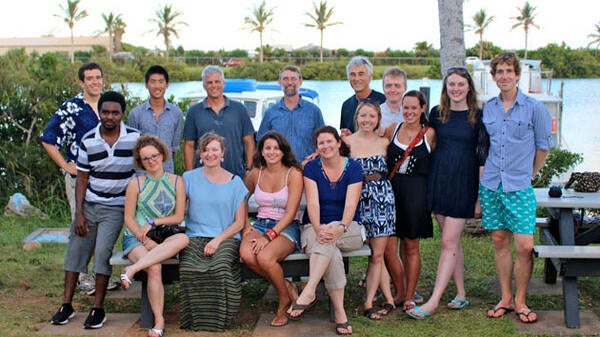
Since 1999 undergraduate and graduate students from around the world have traveled to BIOS each summer to participate in the Microbial Oceanography course. This three-week intensive course is co-taught by Dr. Craig Carlson (University of California, Santa Barbara), Dr. Stephen Giovannoni (Oregon State University), Dr. Craig Nelson (University of Hawaii), Rachel Parsons (BIOS), and Dr. John Heidelberg (University of Southern California), which provides students with a truly multidisciplinary learning experience that taps into the combined expertise of top scientists in their respective fields. This course has been made possible over the years with funding from BIOS, the National Science Foundation, Gordon and Betty Moore Foundation and the Agouron Institute.
Students From Around the World Study Coral Reef Ecology at BIOS
August 26, 2013
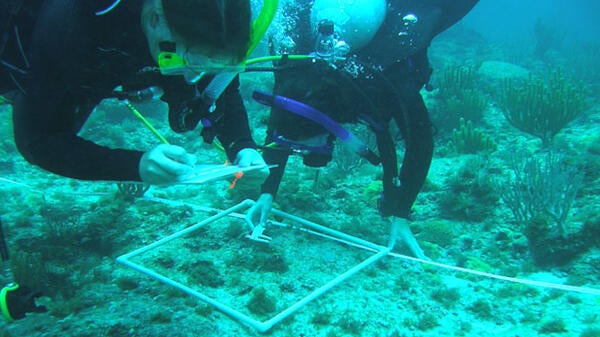
Dr. Eric Hochberg, one of the CRE course instructors, said, “I have two goals with CRE. The first is to teach the students our most current understanding about how coral reef ecosystems work, from the biology to the chemistry to the physics. The second goal is to give the students practical experience studying real coral reef systems. This means strapping on a SCUBA tank, getting in the water, and making scientifically rigorous observations. This is training that cannot be taught in a classroom.”
REU Student to Represent BIOS at ASLO Meeting
October 25, 2013

Kelly Speare, a 2012 Research Experiences for Undergraduates (REU) student and 2013 BIOS summer intern, was chosen from a pool of qualified candidates to represent BIOS at the 2014 Ocean Sciences Meeting in Honolulu, HI. This bi-annual meeting is convened by the American Society for Limnology and Oceanography (ASLO), The Oceanography Society (TOS), and the American Geophysical Union (AGU), and brings together scientists from around the world to discuss current topics in marine science, technology, and education.
Small Change, Big Improvement: Modified Method Captures the Ocean’s Most Abundant Organism
July 15, 2015
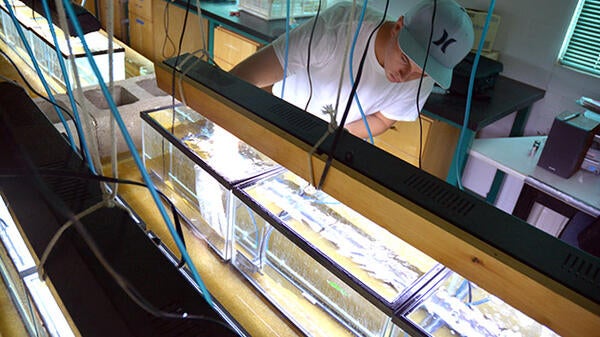
BIOS researchers and their colleagues from Woods Hole Oceanographic Institution have refined a common survey method to better account for a marine bacterium known as SAR11. Since BIOS adjunct scientist Steven Giovannoni discovered SAR11 in 1990, scientists have found the Sargasso Sea bacterium is ubiquitous in the world’s oceans and accounts for roughly one in every three cells at the ocean’s surface. These bacteria have power in numbers: each cell contributes to the marine carbon cycle, and with approximately five million bacterial cells inhabiting every tablespoon of seawater, SAR11 is so abundant that its combined weight would outweigh all the fish in the ocean.
